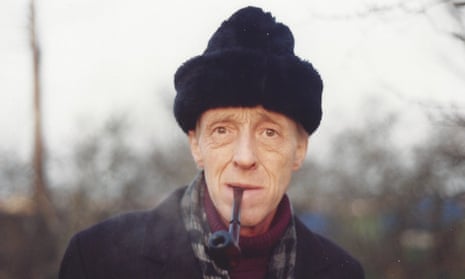In an anonymous letter printed in the Times on 6 July 1940, the 11-year-old David Wedgwood Benn, who feared being evacuated to Canada, explained he would “rather be bombed to fragments than leave England”. His letter caught the eye of the prime minister, Winston Churchill, who instructed his office to identify the author. They did and Churchill sent the young boy an autographed volume of one of his own works in recognition of his patriotic defiance. Just as significantly, this episode was an early indication of David’s lifelong instinct to question received wisdoms and assumed orthodoxies, allied to a healthy sense of dissent.
David, who has died aged 88, became a linguist and scholar whose work as a barrister, BBC broadcaster, journalist and academic author reflected his determination to seek out objective truth. Dedicated to the study of international affairs, he retained an infectious and boyish curiosity for making sense of the world around him. He was, by his own admission, “conservative in everything but politics” – David was what one might call an “analytical socialist”, concerning himself with a detailed study of socialism in practice.
It was another letter, this time to the Soviet newspaper Pravda in Moscow, that led David to his long and influential career at the BBC. Shaken by the Soviet Union’s brutal repression of the Hungarian uprising, in December 1956 David organised and drafted a critical open letter signed by leading members of the parliamentary Labour party, including his brother Tony, requesting a justification of Soviet actions.
No response was heard until the BBC Russian Service, on the instruction of its head, Anatol Goldberg, broadcast the letter. Within two days, Pravda printed a reply – tantamount to an official Soviet response – that acknowledged to a domestic audience of millions the international dispute then raging over the Soviet Union’s highly selective interpretation of events in Hungary.
David became an expert contributor to BBC Russian broadcasts before joining the English-language General Overseas Service (later renamed the World Service) on a permanent basis in 1963. After a brief spell in the Russian Service a decade later, David was appointed Head of the Yugoslav Service in 1974, quickly acquiring a working knowledge of Serbo-Croatian.
In these years, he was able to apply his analytical skills to the job of broadcasting and combine his considerable knowledge of international relations with engaging listeners on issues of political significance. He was also able to examine, at first hand, the influence of the media, both domestic and international, on Soviet affairs.
David’s arrival at the BBC had coincided with the continuation of a fierce internal debate about the tone of broadcasts over the iron curtain. Along with colleagues such as Goldberg and Krsto (Christopher) Cviic, David believed in engaging audiences in a sympathetic dialogue that built bridges between east and west. Others, sometimes including the Foreign Office, which funded the BBC’s overseas services, felt a more challenging tone was necessary. It was David’s sense that these cold war considerations were exerting too great an influence on editorial policy that led to his taking early retirement in 1984.
He remained, however, committed to understanding and writing about the social and political forces that frame the modern world. His book Persuasion and Soviet Politics (1989) broke new ground in illuminating the role of propaganda in Soviet history. The interplay between media, society and politics in the USSR and Russia was the focus of From Glasnost to Freedom of Speech, a study for the international affairs thinktank Chatham House.
His research also shone a much-needed light on Britain’s cold war machinery of propaganda and political warfare, most notably concerning the Foreign Office’s Information Research Department. David’s appetite for the study of politics never ceased and he continued to work up until his death on an as-yet-unpublished examination of the future of socialism.
David was born into politics. His mother, Margaret, a theologian and activist, was the daughter of the Liberal MP Daniel Holmes. His father, William Wedgwood Benn, was first a Liberal and then Labour MP who served as secretary of state for India (1929-31) and, as Viscount Stansgate, secretary of state for air (1945-46).
For David, born in Greenock, Renfrewshire, and his two older brothers, Michael (who died in 1944) and Tony (who died in 2014), family life revolved around the great political and moral issues of the day. For the “Prof”, as close family called the intellectually curious David, this was fertile ground. Subsequent study in philosophy, politics and economics at Balliol College, Oxford, from where he graduated in 1951, going on to train and practise as a barrister, added an academic method to his passionate fascination with global politics. Yet, while the political careers of his father and brother were conducted in the public gaze, David’s intellectualism engendered a self-effacing, but no less committed, sense of public service.
In 1959, he married June Barraclough, a modern languages graduate of Somerville College, Oxford, and teacher who, in later life, became a popular and prolific novelist. She died in 2006.
David is survived by their children, Piers and Frances, and a grandson, Michael.

Comments (…)
Sign in or create your Guardian account to join the discussion